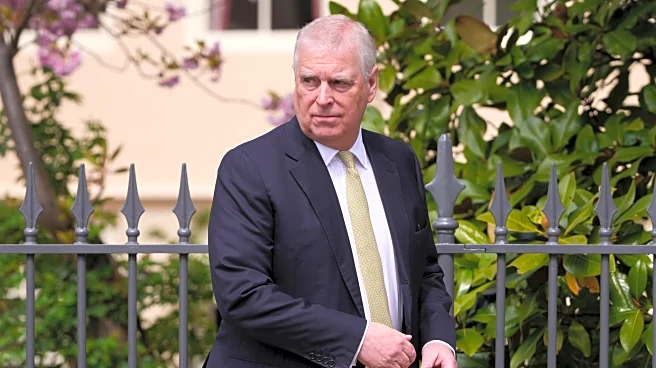Rapid Read • 9 min read
A panel of federal judges has overturned the conviction of Pedro Hernandez, who was found guilty in 2017 of kidnapping and murdering 6-year-old Etan Patz in 1979. The case, which drew national attention, was pivotal in raising awareness about missing children in the United States. Hernandez's conviction was based largely on a confession obtained under controversial circumstances. The judges ruled that the confession was improperly handled, noting Hernandez's low IQ and mental health issues, and the fact that he was given medication during the interrogation. The confession was recorded only after Hernandez was read his Miranda rights, leading to concerns about its voluntariness. The judges concluded that the jury received misleading instructions during the trial, which contributed to the decision to overturn the conviction.
AD
The overturning of Hernandez's conviction highlights significant issues in the criminal justice system, particularly regarding the treatment of suspects with mental health challenges and the handling of confessions. This decision may impact future cases where confessions are central to the prosecution's evidence, prompting a reevaluation of interrogation practices and legal standards. The case also underscores the ongoing mystery surrounding Etan Patz's disappearance, which remains unsolved, leaving a lasting impact on public consciousness about child safety. The ruling may influence how law enforcement and courts address similar cases, potentially leading to reforms in interrogation procedures and the protection of vulnerable individuals during legal processes.
Pedro Hernandez is set to be released after spending eight years in prison. The Manhattan District Attorney, Alvin Bragg, faces the decision of whether to pursue a third trial against Hernandez. However, the lack of physical evidence and the reliance on the controversial confession may complicate further legal action. The case's unresolved status continues to leave questions about Etan Patz's disappearance, maintaining public interest and pressure on authorities to find answers. Legal experts and advocacy groups may push for changes in how confessions are obtained and used in court, potentially influencing future legislation and judicial practices.
The case raises ethical questions about the balance between securing convictions and ensuring fair treatment of suspects, particularly those with mental health issues. It also highlights the cultural impact of high-profile missing children cases, which have historically influenced public perceptions of safety and led to changes in policies regarding child protection. The decision may prompt discussions on the role of media in shaping public opinion and the pressure it places on law enforcement to solve cases swiftly, sometimes at the expense of justice.
AD
More Stories You Might Enjoy













